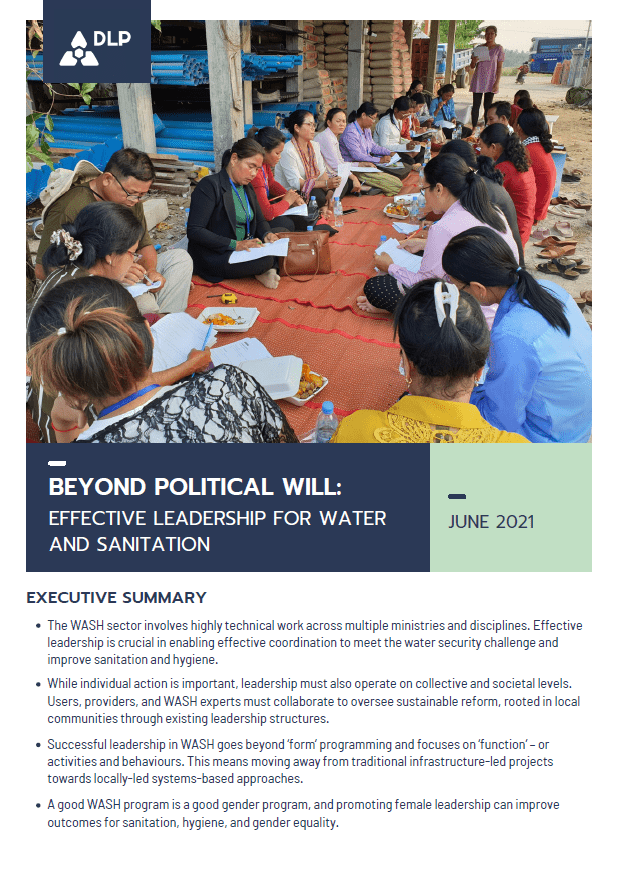This report is a summary of the DLP webinar ‘Beyond Political Will: Effective leadership for Water and Sanitation’ that took place on 10 June 2021. The webinar aimed to provide a space to discuss what kind of leadership is needed for effective and inclusive governance in the WASH sector, where leaders come from, and how can they be supported through policy and programming.
Chaired by Claire Mcloughlin, DLP’s Director of Research, and joined by discussant Peter O’Connor, Director of the Water Security Section, DFAT, the webinar convened an expert panel who shared the latest thinking and research on leadership in the WASH sector. Henry Northover shared insights from a recent WaterAid report on the key traits of effective leadership in countries that have achieved a step change in sector performance, whilst Tum Nhim presented key lessons from WaterSHED Asia’s systems approach to making water, sanitation and hygiene markets work better for all. This includes brand new findings from DLP-funded research into their Civic Champions leadership programme – an innovative approach that has seen a 400% increase in toilet sales, and been scaled up through institutional buy-in at multiple levels.
There were four key takeaways from the discussion that highlighted the importance of leadership in the sector:
- The WASH sector involves highly technical work across multiple ministries and disciplines. Effective leadership is crucial in enabling effective coordination to meet the water security challenge and improve sanitation and hygiene.
- While individual action is important, leadership must also operate on collective and societal levels. Users, providers, and WASH experts must collaborate to oversee sustainable reform, rooted in local communities through existing leadership structures.
- Successful leadership in WASH goes beyond ‘form’ programming and focuses on ‘function’ – or activities and behaviours. This means moving away from traditional infrastructure-led projects towards locally-led systems-based approaches.
- A good WASH program is a good gender program, and promoting female leadership can improve outcomes for sanitation, hygiene, and gender equality.











